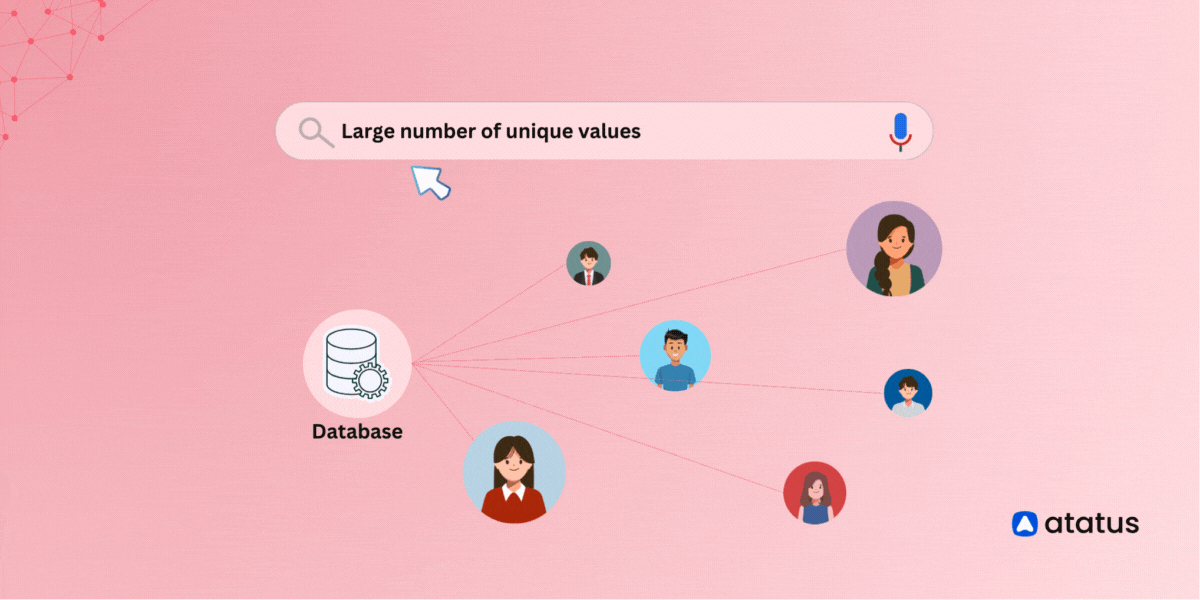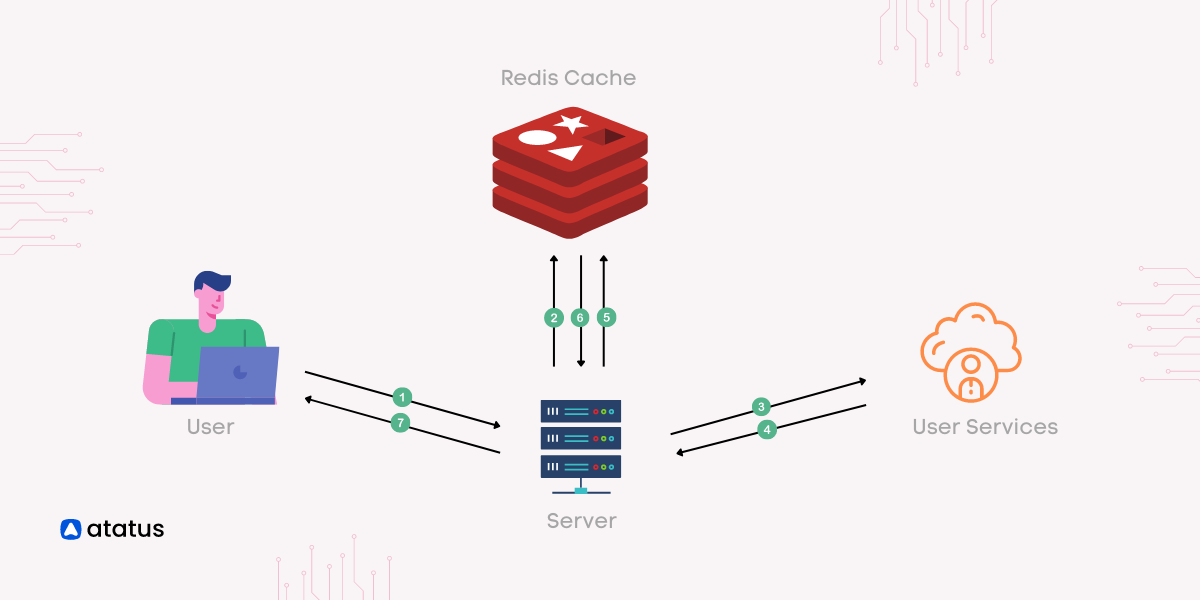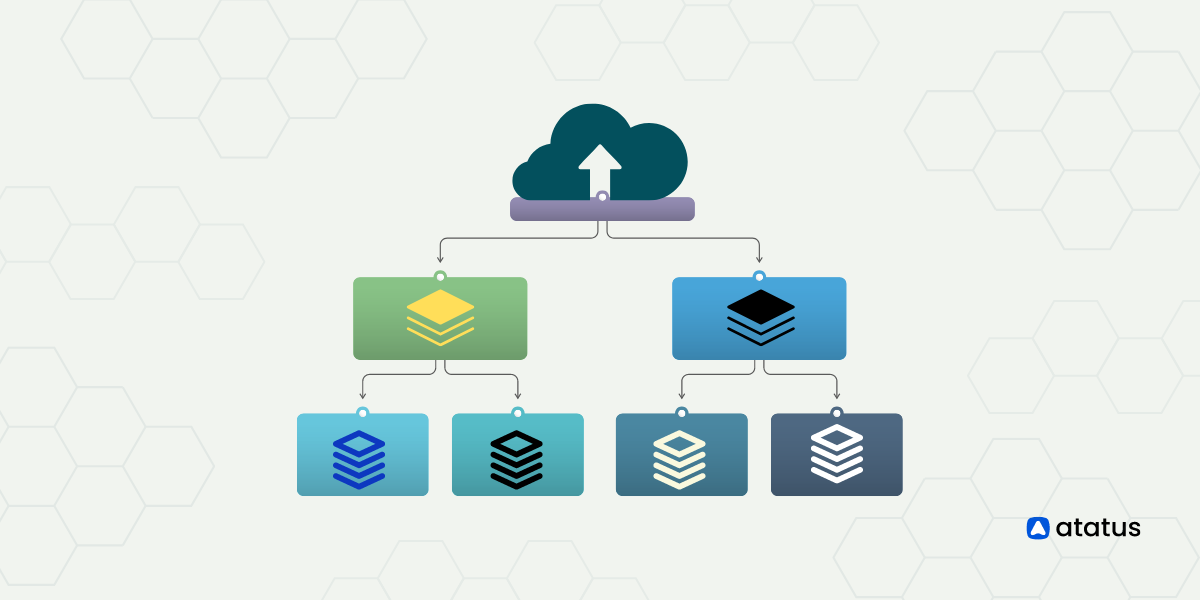10 Most Popular Databases You Should Know Apart From MySQL
Databases are everywhere these days, every application uses databases to store, organize and retrieve data. It has become more efficient than paper storage since it does not require more space and can also be easily accessed by multiple users at a time. There is an increase in demand for processing vast collections of data and this has become the most important reason for several companies to use databases. The database is the core element in any applications since it stores the most important data that is required to run any application or software.
Data powers everything that we do
It will be very difficult to find data manually from files or a particular record with millions of data. Using a database you can easily retrieve specific data with queries. You can also add, delete, update data and can be used in many aspects without any hindrance. Here are a few well-known examples where databases are used.
- Social Media - Used in storing user information
- Online Television Streaming - Uses the database to generate the list of shows to keep track of the users’ preferences and provides a list of recommended viewing
- E-Commerce - Stores products, pricing, user, user purchase history information which might help organize and recommend the feasible products to the customers.
- HealthCare - Db helps in storing patient data and other pharmaceutical information.
StackOverflow, a question and answer platform surveyed about more than 65,000 developers and collected information on the most used database in the year 2020. MySQL has maintained the top position every year followed by PostgreSQL and Microsoft SQL Server.


With the above two images, you might think that MySQL is the most preferred databases and has more advantages. Yes, You are quite right. But other databases also has its advantages and offers great features which you might not know. Get to know about the interesting features of other popular databases and pick the right one for your business.
10 Most Popular Databases
To help developers find out the top-notch databases, we have generated the list of best-known databases with its key features.
- PostgreSQL
- Microsoft SQL Server
- SQLite
- MongoDB
- Redis
- MariaDB
- Oracle
- Elastic Search
- Firebase
- DynamoDB
1. PostgreSQL
In the Stack Overflow annual developers survey, PostgresQL is the second most widely used database technology. It is a powerful, open-source, object-relational database system which uses SQL language with many features. It was first named as Postgres which had been evolved from its successor Ingres database which was developed at the University of California, Berkely. Afterwards, it was named as PostgresSQL to support SQL.
Since it is an open-source DBMS user can post and share inconvenience and bugs within the community. It is light-weight, easy to install, highly flexible and also supports relational and non-relational models. It supports most popular programming languages like Python, Java, JavaScript, C/C++, C#, Go, Ruby etc.
Features
- Compatible on various Operating Systems like Microsoft Windows, Linux, MacOS X, UNIX etc.
- Supports Data Integrity
- Provides a robust access control system
- Supports multiple data types such as Structured, Primitives, Customizations, Document and Geometry.
- Highly reliable and extensible
Major Companies That Uses PostgreSQL
- Apple
- IMDB
- Skype
- Spotify
- International Space Station
2. Microsoft SQL Server
Microsoft SQL Server is a relational DBMS developed by Microsoft and initially launched in 1989. It is the most commonly used commercial database in the market. It is platform-independent and implemented from the specification of RDBMS. It supports the standard SQL language - ANSI SQL. T-SQL known as Transact-SQL is a Microsoft propriety which provides further capabilities of declaring variable, exception handling, stored procedure, etc.
Features
- High Performance and availability
- Robust transactional support
- Supports data virtualisation with Polybase
- Supports Persistent Memory devices
- Encrypted with Secure enclaves
Major Companies That Uses Microsoft SQL Server
- Stack Overflow
- Microsoft
- Alibaba Travels
- Hepsiburada
- Durstexpress GmbH
3. SQLite
DB Browser for SQLite (DB4S) is a visual, open-source, zero-configuration and transactional relational database engine which is used to create, design and edit database files. It is a C-language library that implements fast, self-contained and high-reliability SQL database engine. The SQLite file format is stable, cross-platform and the files are used as containers.
It was first designed by D. Richard Hipp in the year 2000. Unlike other databases, it is very light in weight(less than 500kb size), doesn't have a separate process, reads and writes directly to disk files.
Features
- It is serverless since it doesn't require a different server to operate
- Doesn't require any configuration. No setup or administration is required.
- It can be used in a lot of embedded operating systems like Symbian, and Windows CE and also available on Windows, Linux, Mac OS-X etc...
- Variable-length records - Uses only the amount of disk space needed to store the data. For ex: If you store a single character in a variable with varchar(50) column, then it takes only the space needed by the data i.e single byte of disk space
- It provides a large number of API's for a wide range of programming languages like Python, .Net, PHP, Java etc.
Major Companies That Uses SQLite
- Acquireforensics
- Phpbuilder
- Youview
- Purelogics
- Gorilla Logic
- Easy Movie
4. MongoDB
MongoDB is NO SQL database and is an open-source, cross-platform, document-oriented database written in C++ and developed by an organization named 10gen. It provides high performance, high availability and automatic scaling. It was designed to work with commodity servers and now it has been used across all industry. MongoDB offers driver support for all popular programming languages such as C, C++, C#, Java, Node. js, Perl, PHP, Python, Ruby, Scala, Go and Erlang
Features
- Schemaless database
- High Performance
- Supports Rich query language as well as Text Search and Geospatial Queries
- Supports Multiple Storage Engines like WiredTiger Storage Engine and In-Memory Storage Engine
- Sharding - distributes data across a cluster of machines
- Replication provides automatic failover and data redundancy
Major Companies That Uses MongoDB
- GAP
- AstraZeneca
- Adobe
- eBay
- Sisco
- SAP
5. Redis
Redis stands for Remote Dictionary Server which is an open-source (BSD licensed), flexible, fast, in-memory data structure store used as a database, cache, and message broker. It is a NoSQL database which follows the principle of the key-value store using which you can store the value inside a key and you can only retrieve the data if you know the exact key used to store it. Since it is a NoSQL database it supports users to store a huge set of data without the limitations of a Relational database. It is a
Features
- Supports multiple data models and data structures such as Strings, Lists, Sets, Sorted sets, Bitmaps etc. to meet your application needs
- Offers Data Replication
- It has a client in almost all popular programming languages like Python, C, Ruby, Java, JavaScript etc.
- You can develop a high messaging application using Redis’s Pub/Sub messaging mechanism
- Using the Sharding technique it withstands multiple concurrent write requests or transactions per second
- It can also be used with other databases and reduces load and improves performance
Major Companies That Uses Redis
- Github
- Snapchat
- Craigslist
- Stack Overflow
- Flickr
- Digg
6. MariaDB
The most popular database all over the world and MariaDB was developed by the original MySQL developers and it is a great replacement if MySQL. It is an open-source, multithreaded, relational database which was released under GNU Public License.
Features
- Export data from a local device to Amazon S3
- Offers Galera cluster technology with full GTID support
- Offers Backward compatibility
- Supports new Storage Engine such as PBXT, XtraDB, Maria, FederatedX etc.
Major Companies That Uses MariaDB
- Amazon
- DBS Bank
- Discover Financial Services
- Magellan Health
- Great Healthworks
- Proofpoint
- ServiceNow
7. Oracle
Oracle is a relational database management system with various names such as Oracle DB or Oracle database or simply Oracle which is mainly used in enterprise applications. It was developed by Lawrence Ellison (Larry Ellison) and his two friends and former co-worker in 1977, designed and marketed by Oracle Corporation, developed especially for enterprise grid computing. It supports C, C++, Java, COBOL, PL/SQL and Visual Basic programming languages. There are four different editions of Oracle database
Editions and its features
- Enterprise Edition - Involves features like security, performance, scalability and availability required for critical applications with online transaction processing.
- Standard Edition One - From single-server environments for small business to highly distributed branch environments this edition includes all the features.
- Standard Edition - Doesn't include robust package. Has all the basic features with support for larger machines and clustering of services with Oracle Real Application Clusters (Oracle RAC).
- Express Edition (XE) - It is an entry-level edition which is quick to download, easy to install and use, free to develop, deploy and distribute. It is easy to upgrade to other higher editions of oracle without complex migrations.
- Oracle Lite - Designed primarily for mobile devices.
- Personal Edition - Supports single-user development and deployment environments. It is available only in windows platform. Includes all Standard Edition One, Standard Edition and Enterprise Edition features but doesn't support Oracle Real Application Clusters option.
Major Companies That Uses Oracle
- JPMorgan Chase
- Veeam Software
- Fiserv
- Anthem
- MoneyGram
8. Elastic Search
Elasticsearch is a NoSQL database which was built on Apache Lucene and was first released in the year 2010 by Elastic formerly known as Elastic NV. It is a real-time, distributed, RESTful search and analytics engine for all types of data. It is living heart of log analytics platform, the ELK Stack (Elasticsearch, Logstash and Kibana). Similar to the MongoDB, it stores the data in document format.
It can be mostly used in Single Page Applications(SPM). Elastic Search as a server processes JSON request and returns JSON data. Here is a sample Elastic Search document.
{
"firstname": "Vincent
"lastname": "Louis",
"age": 29,
"gender": "M",
"email": "bradshawmckenzie@euron.com",
"city": "Hobucken",
"state": "CO"
}Clients are available in Java, .NET (C#), PHP, Python, Apache Groovy, Ruby and many other languages.
Features
- Scalable across multiple nodes
- Multilingual - Available in various languages
- Doesn't use schemas and tables to store data and so it is called document-oriented
- Supports auto-completion and instant search whenever you start typing queries and provides suggestions to complete queries
Major Companies That Uses ElasticSearch
- Uber
- Udemy
- Shopify
- Slack
- Instacart
- Robinhood
- LaunchDarkly
9. Firebase
Firebase evolved from Envolve, a start-up founded by James Tamplin and Andrew Lee in the year 2011. It created an API for developers which allowed the integration of online chat functionality into their websites. James and Andrew founded a separate company and it was launched in April 2012 named Firebase and the first product of it was Firebase.
It can be used for Android, iOS, Web or Unity. It is Backend-as-a-Service (BaaS) is a real-time database that allows storing a list of objects in the form of a tree. It also provides tools for tracking analytics, report and fix app crashes and creating marketing and product experiments. Supports popular programming languages like C++, Java, JavaScript, Node. js, Objective-C, and Swift
Features
- Analytics dashboard which is free and can report 500 event types each with 25 attributes
- Cloud Messaging
- Dynamic Links
- Crash reporting
- Authentication
- Hosting
- Real-time database
- Remote Configuration
- Supports integration with other services
Major Companies That Uses Firebase
- Twitch
- Instacart
- Stack
- Client Platform
- Bepro Company
10. DynamoDB
DynamoDB is a cloud-native, fast, highly-reliable, cost-effective and flexible NoSQL database which can be used for any type of applications that require consistent single-digit millisecond latency at any scale and it runs only on Amazon Web Services(AWS). Since it is a NoSQL database it doesn't support ANSI Structured Query Language.
With DynamoDb you can create tables, store and retrieve an enormous amount of data and can serve any level of request traffics. It supports both key-value and document data structures and stores data in SSD storage. It provides on-demand backup capability which allows you to create full backups of your tables. Supports popular programming languages like Java, C#, Python, Perl, PHP, Ruby, Erlang, Javascript.
Features
- Supports scalar, muti-valued and document data structures.
- AWS Glue Elastic Views supports DynamoDb where you can combine and replicate data across multiple databases in real-time
- Export data from DynamoDb to Amazon S3 and you can also use other AWS services to analyze data
- Supports access with AWS credentials
- Provides end-to-end security for customers
Major Companies That Uses DynamoDB
- Netflix
- Amazon
- Lyft
- Delivery Hero
- Stack
- Nubank
- The NewYork Times
Conclusion
Every database has its strength and weakness. Choosing the right database for your application has become a crucial thing while developing applications. The above blog will help you in identifying the best database to build your application. Pick the best database in the above list that would perfectly suit your needs and provide more personalized and fast services to your customers.
#1 Solution for Logs, Traces & Metrics
APM
Kubernetes
Logs
Synthetics
RUM
Serverless
Security
More





